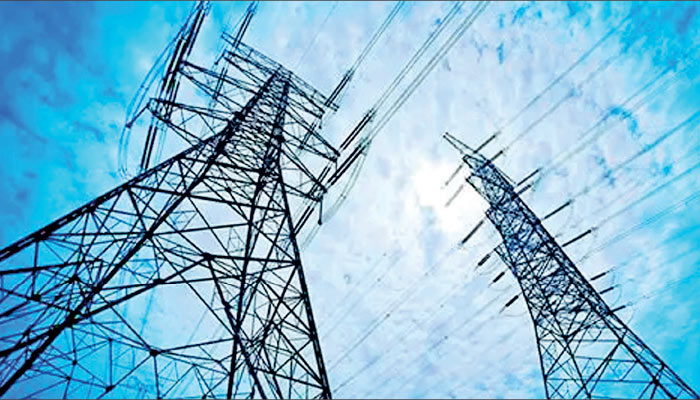Sunday Feb 22, 2026
Sunday Feb 22, 2026
Friday, 11 July 2025 00:31 - - {{hitsCtrl.values.hits}}

If enacted without significant reform, this Bill will not just destabilise Sri Lanka’s energy sector—it will effectively sign the death warrant of Sri Lanka’s economic sovereignty
 The National People’s Power Government rose to power promising transparency, institutional reform, and a green energy revolution. The President vowed to build an accountable electricity regime; the Energy Minister committed to regulator independence and market modernisation. Yet, the Electricity Amendment Bill 2025 delivers the opposite. It entrenches ministerial control, resurrects monopolies, enables corruption, and locks the nation into decades of coal dependence. Enacting this Bill will devastate donor confidence, repel investors, deepen energy poverty, and reverse Sri Lanka’s hard-earned progress
The National People’s Power Government rose to power promising transparency, institutional reform, and a green energy revolution. The President vowed to build an accountable electricity regime; the Energy Minister committed to regulator independence and market modernisation. Yet, the Electricity Amendment Bill 2025 delivers the opposite. It entrenches ministerial control, resurrects monopolies, enables corruption, and locks the nation into decades of coal dependence. Enacting this Bill will devastate donor confidence, repel investors, deepen energy poverty, and reverse Sri Lanka’s hard-earned progress
 Sri Lanka’s fragile recovery from the devastating 2022 sovereign debt crisis now faces an unprecedented and existential threat. The newly proposed Electricity Amendment Bill 2025, under the guise of modernising and reforming the power sector, is in reality a carefully disguised Trojan Horse — designed to dismantle independent oversight, legalise corruption, suffocate private investment, entrench fossil fuel dependence, and burden future generations with an unsustainable debt bomb.
Sri Lanka’s fragile recovery from the devastating 2022 sovereign debt crisis now faces an unprecedented and existential threat. The newly proposed Electricity Amendment Bill 2025, under the guise of modernising and reforming the power sector, is in reality a carefully disguised Trojan Horse — designed to dismantle independent oversight, legalise corruption, suffocate private investment, entrench fossil fuel dependence, and burden future generations with an unsustainable debt bomb.
This legislation is not merely a policy miscalculation; it is a politically driven assault on fiscal discipline, institutional integrity, and environmental responsibility. If enacted without significant reform, this Bill will not just destabilise Sri Lanka’s energy sector—it will effectively sign the death warrant of Sri Lanka’s economic sovereignty.
1. Assassination of independent oversight — crushing accountability to cement ministerial control
At the heart of this Bill is the abolition of the National Electricity Advisory Council (NEAC) — Sri Lanka’s only multidisciplinary, independent body tasked with overseeing electricity sector reforms and safeguarding public interest (Section 3). The Bill replaces NEAC with a committee directly appointed and controlled by the Minister of Power (Section 8), stripping away constitutional protections that ensured NEAC’s autonomy and multidisciplinary expertise.
Why this matters?
Independent oversight bodies worldwide have proven essential to transparency, market confidence, and reducing political interference. According to the World Bank (2025), countries abolishing similar councils experienced a devastating 37% reduction in renewable energy project approvals between 2015 and 2022, severely crippling climate action efforts. India’s insulated regulatory model, which empowers independent commissions, has yielded tariff reductions of 22% and improved service quality (World Bank, 2025).
The Bill’s repeal of NEAC betrays these proven global practices and will inevitably concentrate unchecked power in ministerial hands — turning oversight into a rubber-stamp mechanism.
Political betrayal of NPP promises
The National People’s Power (NPP) coalition, which ascended to power in 2024, campaigned on a robust platform of transparency, institutional reform, and de-politicisation of energy governance. Their manifesto explicitly pledged to:
Contrary to these commitments, the Electricity Amendment Bill abolishes NEAC and consolidates control within the Minister’s office, signalling a sharp regression into politicisation and eroding public trust.
Urgent fix
2. Emergency powers — legalising corruption under the guise of crisis
Section 11(4) of the Bill grants sweeping authority to award no-bid contracts lasting up to one year during vaguely defined “national calamities.” This provision institutionalises unchecked favouritism and inflated costs.
Sri Lanka’s Auditor-General exposed these risks in 2023, reporting a 47% inflation in emergency diesel contracts awarded without competitive bidding, sparking corruption scandals and breaching the IMF’s fiscal integrity conditions linked to the $ 3 billion bailout (IMF Country Report, 2025).
The Bill’s ambiguous definition of “calamity” effectively normalises a perpetual state of emergency, allowing the Government to bypass procurement safeguards indefinitely.
Political contradiction
The President and Energy Minister have publicly pledged fiscal discipline and anti-corruption reforms (Presidential Address, 2024; Energy Ministry Press Release, 2025), yet the Bill’s emergency provisions dangerously undermine these assurances, risking donor confidence and bailout continuity.
Fixes
3. State monopoly expansion — economic sabotage in disguise
The Bill enshrines 100% State ownership of transmission and the National System Operator (NSO) (Sections 12 & 14), bans private equity stakes or cross-ownership (Section 20(6)), and forcibly nationalises the $ 1.3 billion Norochcholai coal plant (Schedule I).
This aggressive state monopoly has already led to investor retreat: the Adani Group withdrew a $ 500 million wind power investment citing “policy uncertainty” (Reuters, 2024). The World Bank estimates $ 4.2 billion in grid modernisation is required by 2030, funding impossible without private sector participation (World Bank, 2025).
'
Breach of NPP’s green energy and market reform promises
The NPP manifesto emphatically committed to a mixed ownership model, promoting private investment, public-private partnerships, and renewable energy expansion as pillars of economic recovery (NPP Manifesto, 2024). It stated:
The Bill’s hardline centralisation and state monopolisation directly contradict these pledges, undermining investor confidence and casting doubt on the Government’s reform commitment.
Recommendations
4. Weaponising the national system operator — conflict of interest on steroids
The Bill mandates the NSO to draft market rules (Section 30(3A)), enforce grid codes (Section 10(15)), and approve emergency no-bid contracts (Section 11(4)), all while remaining a State entity.
Verité Research (2024) highlights that systems combining operational and regulatory roles suffer 220% more blackouts, undermining grid reliability. The U.S. Federal Energy Regulatory Commission (FERC) and other international regulators emphasise the importance of separating these powers.
Though the Energy Minister declared during parliamentary sessions a commitment to maintain NSO neutrality and technical independence (Parliament Hansard, Nov 2024), the Bill eviscerates this independence, transforming NSO into a political instrument.
Remedy
5. The $ 2.9 billion debt bomb — fiscal time bomb for future generations
The Bill saddles new State entities with the entire $ 2.9 billion Ceylon Electricity Board (CEB) debt (Section 14(3)(b)). This financial burden will trigger a projected 28-40% tariff hike by 2027, pushing over 500,000 households into energy poverty (PUCSL, 2025; Tamil Guardian, 2025).
The IMF warns of bailout suspension and sovereign default risks if debt restructuring fails (WSWS, 2025).
Contradiction with NPP’s social justice vision
NPP’s platform commits to “protecting vulnerable populations from energy poverty” and “introducing lifeline tariffs to ensure affordable access for all” (NPP Manifesto, 2024). Passing this Bill without debt relief contravenes these promises, forcing energy costs on the poor and deepening inequality.
Urgent fix
6. Tariff regulation — from independent protector to political puppet
The Bill grants ministers overriding power on tariff-setting, dismantling the Public Utilities Commission of Sri Lanka’s (PUCSL) autonomous pricing mechanism.
This shift injects uncertainty for investors, removes consumer protections, and opens the door for politically motivated tariff manipulation.
Political breach
The NPP manifesto promised “legally guaranteed tariff autonomy” and transparent, formula-based pricing to protect consumers and investors (NPP Manifesto, 2024). The Bill’s reversal of this principle betrays these commitments.
Necessary action
7. Climate commitments betrayed — locking in coal, killing the future
The forced nationalisation of Norochcholai coal plant locks Sri Lanka into emitting 4.2 million tonnes of CO₂ annually, making the nation’s Paris Agreement commitments impossible to fulfil.
The Bill’s barriers on private renewable projects further exacerbate this issue.
Political hypocrisy
President and NPP declared a goal of 70% renewable energy by 2030, embedding climate action into their agenda (NPP Manifesto, 2024). This Bill betrays those climate goals, threatening the country’s environmental future.
Corrective measures
8. Social justice ignored — the poor pay the highest price
Rural and marginalised communities bear the brunt of tariff hikes and unreliable supply, with rising disconnection rates worsening energy poverty.
Women and marginalised groups disproportionately suffer increased domestic burdens and health impacts (UNDP, 2024).
Solutions
9. Fiscal and legal chaos — destroying parliamentary oversight
On 30 June 2025, Sri Lanka’s Supreme Court ruled key provisions unconstitutional, especially unlimited emergency powers and forced debt assignments (Supreme Court Judgment SC FR/187/2025).
The Bill sidelines Parliament’s Estimates Committee, removing critical scrutiny over massive procurement decisions.
Required reforms
Conclusion — the crossroads between national renewal and economic ruin
The National People’s Power Government rose to power promising transparency, institutional reform, and a green energy revolution. The President vowed to build an accountable electricity regime; the Energy Minister committed to regulator independence and market modernisation.
Yet, the Electricity Amendment Bill 2025 delivers the opposite. It entrenches ministerial control, resurrects monopolies, enables corruption, and locks the nation into decades of coal dependence. Enacting this Bill will devastate donor confidence, repel investors, deepen energy poverty, and reverse Sri Lanka’s hard-earned progress.
Parliament now faces a clear choice: amend the Bill to restore independence, open markets, protect consumers, and honour political promises — or sign Sri Lanka’s economic death warrant.
Five non-negotiable reforms to save Sri Lanka’s energy future
1. Reinstate NEAC with constitutional independence and multi-party oversight.
2. Strictly limit emergency procurement to 90 days with judicial and parliamentary approval.
3. Open transmission and NSO to 49% private ownership, enabling public-private partnerships.
4. Cancel or restructure legacy CEB debt under IMF terms, protecting new companies.
5. Safeguard PUCSL’s autonomy in tariff-setting, market design, and procurement oversight.
References:
1. World Bank. (2025). Electricity Regulatory Reform: A Review of Outcomes. Washington DC: World Bank Publications.
2. International Monetary Fund. (2025). Sri Lanka: 2025 Article IV Consultation and Extended Fund Facility Review. IMF Country Report No. 25/xxx.
3. Verité Research. (2024). Governance Risks in Sri Lanka’s Electricity Sector. Colombo: Verité Research.
4. National People’s Power. (2024). Manifesto: A New Sri Lanka — Energy and Environment Policy. Colombo: NPP Publications.
5. Daily Mirror. (2025, June). “NPP’s Clean Energy Manifesto: Policy Highlights.” Colombo.
6. Reuters. (2024). “Adani Withdraws Wind Project Citing Policy Uncertainty.”
7. World Socialist Web Site (WSWS). (2025, June). “IMF Suspends Bailout Over Sri Lanka Energy Policy Crisis.”
8. Tamil Guardian. (2025, March). “Surge in Rural Electricity Disconnections.”
9. Supreme Court of Sri Lanka. (2025, June 30). Judgment on Electricity Amendment Bill Provisions. Case No. SC FR/187/2025.
10. United Nations Development Programme. (2024). Energy Poverty and Gender in South Asia. New York: UNDP.
11. Parliament Hansard. (2024, November). Statements by the Minister of Energy on NSO Independence.
12. Presidential Address. (2024). “Vision for a Transparent and Sustainable Energy Future.” Colombo.
(The writer, a seasoned professional with over two decades of experience predominantly in tech and project management, is the founder of Noteworthy Global, a UK-based private limited company dedicated to connecting high-potential projects with forward-thinking investors worldwide. Noteworthy Global places a strong emphasis on ROI-driven sustainability and the cultivation of long-term, impactful partnerships. Their work spans renewable energy initiatives, including significant projects in Sri Lanka, as well as project management, digital innovation, and net-zero solutions. Interested parties are encouraged to explore potential project collaborations by reaching out via [email protected]. You can learn more about Noteworthy Global at www.nwglobal.co.uk.)